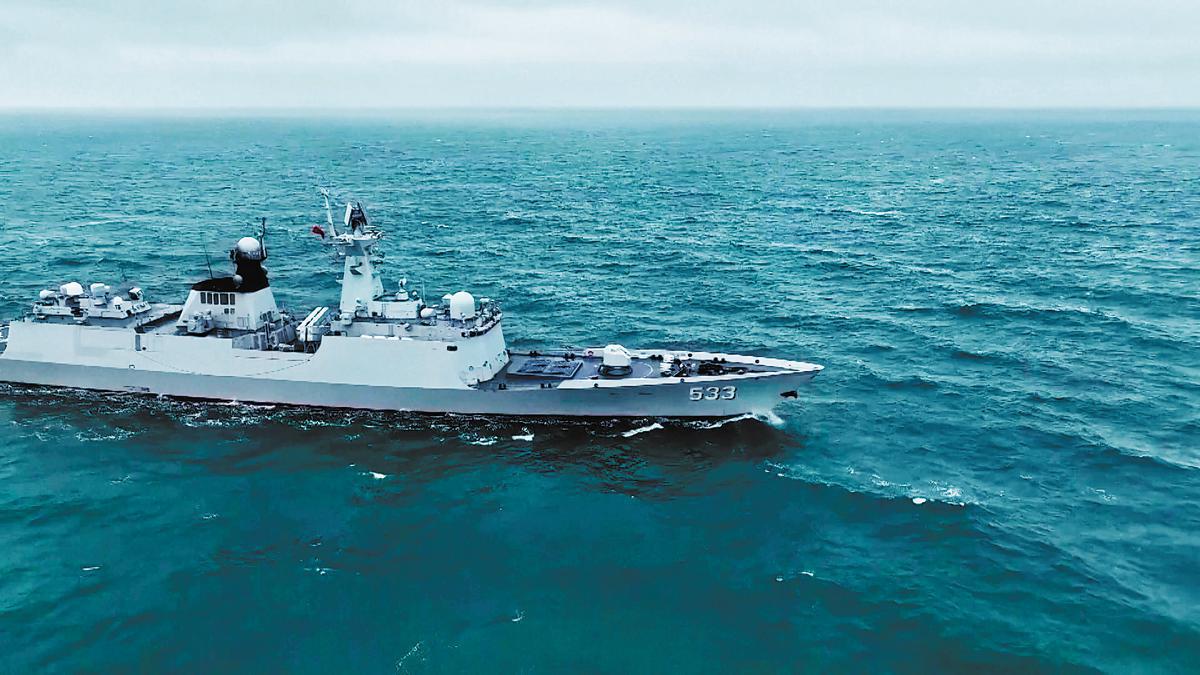
To uphold the one-China principle and the sanctity and authority of relevant United Nations General Assembly resolutions, China has decided not to approve the Taiwan island's participation in this year's World Health Assembly, which commenced in Geneva on Monday.
China's position has won wide support in the world community: more than 100 countries wrote to the director-general of the World Health Organization or expressed via other means their support for China's position. This once again epitomizes that the one-China principle is an international consensus, and any attempt to internationalize the Taiwan question will come to no avail.
READ MORE: PLA continues military drills around Taiwan Island
From 2009 to 2016, Beijing made a special arrangement for the island's participation in the WHA on the basis of the island's Kuomintang authorities upholding the one-China principle. But that political foundation no longer exists after the "pro-independence" Democratic Progressive Party came to power in 2016.
This year, the issue of Taiwan's participation in the WHA flared up again before Taiwan regional leader Lai Ching-te's inauguration as some ill-intentioned politicians in Washington sought to signal their support to Lai and his DPP and embolden them to walk even further along the dangerous road of "Taiwan independence".
Their aim has been to use the WHA to create confusion and mislead the public on Taiwan-related issues. Viewing Beijing as a strategic rival, Washington has long worked hand in glove with the "pro-independence" DPP authorities on the Chinese island. The attempt to manipulate Taiwan's nonparticipation in the WHA is a trick it has repeatedly played in recent years.
Selling arms to Taiwan, maintaining official contacts with the Chinese island, even at a high level, and sending warships to sail through the Taiwan Strait to raise tensions in the region, are other ways in which the US tries to interfere in the Taiwan question to put Beijing on the back foot. The US has also been enlisting the support of its allies to meddle in the Taiwan question, and Japan has proved to be a willing accomplice in this regard.
Last week, in his inauguration speech, Lai revealed his true face as a radical agent of historical revisionism. Some in Japan who have claimed time and again that "a Taiwan emergency is a Japanese emergency" and that Japan would aid Taiwan in the event of an "emergency" have readily jumped at the opportunity to throw their weight behind Lai.
ALSO READ: Beijing makes it clear that there is absolutely no space for separatism
This is a narrative peddled again and again by Japan's right-wing politicians, who are caught up in their own fantasy of reviving Japanese militarism and intend to push Japan onto a road of remilitarization by means of sticking their noses into China's domestic affair.
After his inauguration, Beijing has taken lawful measures to dispel any foolish notions Lai may have about "Taiwan independence" as a result of the noise emanating from Washington and Tokyo. These measures have included staging military exercises in waters around the island to prove the fallacy that outside support would enable the secessionists to cleave the island from the motherland.
In the face of Beijing's illusion-denying resolve to safeguard the nation's sovereignty and territorial integrity, Lai and his like-minded fantasists should pull their heads out of the clouds and plant their feet firmly on the ground so they don't get pushed onto a dangerous path by their supposed "friends".


